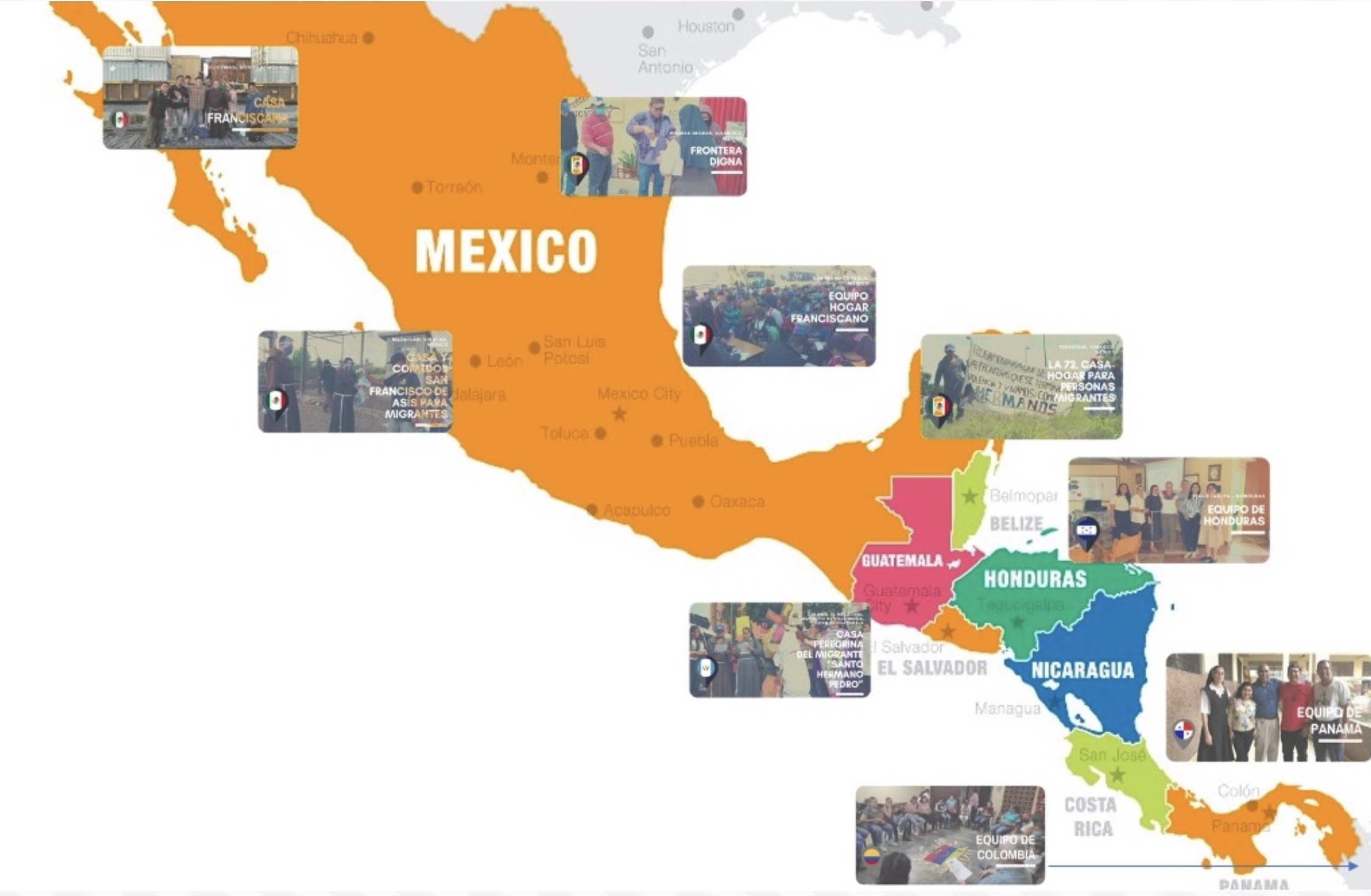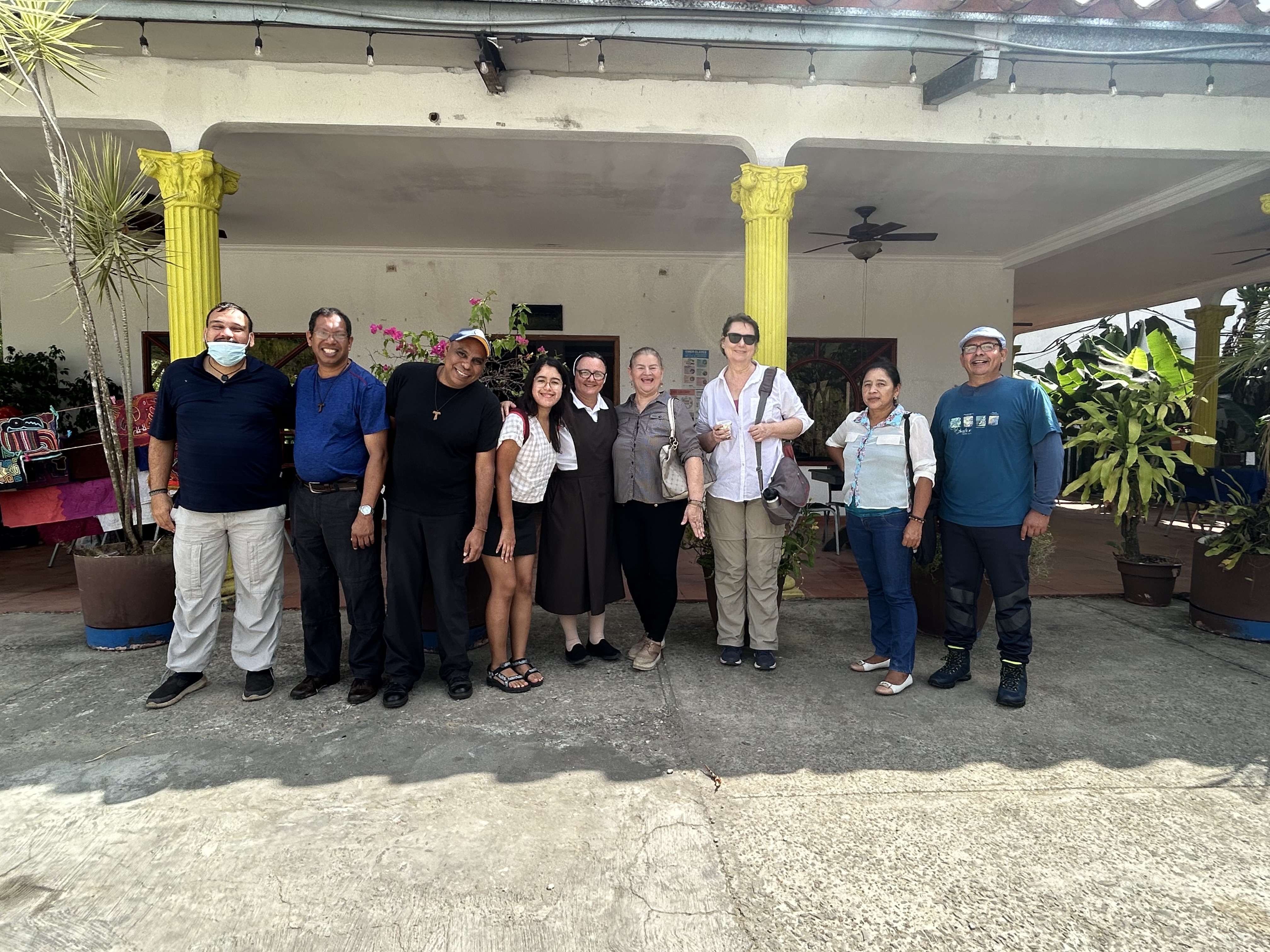Statement: On the fire at the Immigration Detention Station in Juárez, Mexico
Below is a statement we released with our partners at the Franciscan Network for Migrants. Click HERE to read the original statement in Spanish.
Quixote Center recognizes migration as a fundamental human right under international law. In the United States, migrants strengthen our economy, enrich our culture, and strengthen our social fabric. We are a nation built by migrants for migrants.
The Quixote Center’s principal international partnership is with the Franciscan Network for Migrants (FNM). FNM connects Franciscan-run shelters and other humanitarian assistance programs for migrants who are making the dangerous trek through Mexico, Central America, and South America. We serve as the fiscal sponsor for the FNM within the United States, and coordinate advocacy efforts with their staff. We provide on-going financial support to FNM programs in Panama, a particularly strategic and dangerous migrant crossing point. We offer capacity-strengthening funding to FNM teams, so far supporting teams in Colombia, Brazil, and Mexico.
Quixote Center and FNM organize Solidarity Trips approximately every six months since 2022 as part of our advocacy and education mission, bringing U.S. based migrant justice activists and other professionals to Southern Mexico and Panama to see firsthand how the U.S. border policies impact the lives of hundreds of thousands of people fleeing their homelands to seek a new life, in the United States or elsewhere.
Find out more about our Solidarity Travel Program HERE.
Read the Red Clamor statement February 2025 in English HERE y en Español AQUI.
Read the Red Clamor Panama statement February 2025 HERE y en Español AQUI.
Read January 21st, 2025 Joint Statement with our partners at the Franciscan Network on Migration here
Read November 22nd, 2024 statement from the Franciscan Network on Migration's National Assembly in Mexico here.
Participants from our March 2025 trip to Panama hosted a webinar titled Stranded and Forgotten. You can listen to it HERE.
Participants from the March 2024 trip wrote the report: Danger in the Darién Gap: Human RIghts Abuses and the Need for Human Pathways to Safety to denounce US efforts to further externalize US border to Panama.

Below is a statement we released with our partners at the Franciscan Network for Migrants. Click HERE to read the original statement in Spanish.

This past week, the Quixote Center team traveled to Panama to meet with our partners at the Franciscan Network on Migration (RFM), to learn more about the conditions migrants encounter in Panama and see how we can continue to accompany and support the RFM’s work there.
The Biden administration proposed a new rule that would bar most migrants from being able to seek asylum if they did not seek asylum in a country through which they transited or based on how they entered.
The following is a statement released by the Colectivo de Observación y Monitoreo de Derechos Humanos en el Sureste Méxicano, of which our partners at La 72 are a part. We have translated the statement from Spanish to English. To read the original statement, click HERE.
During our solidarity trip to Southern Mexico in November, seven participants from partner organizations joined us. The following is a reflection from Sofia Rosales-Zeledon, a Grassroots Advocacy Associate with the American Immigration Lawyers Association (AILA). A young Latinx professional, organizer, and community activist, she is passionate about immigrants' rights and racial equity. As a Grassroots Advocacy Associate, she helps AILA members engage with national advocacy campaigns around AILA's priority areas.
During our solidarity trip to Southern Mexico in November, seven participants from partner organizations joined us. The following is a reflection from participant Thomas Cartwright, an activist with Witness at the Border. A retired financial executive from Columbus, Ohio, Thomas Cartwright is now a global refugee advocate. He advocates for the rights of migrants in Congress, regularly visits border regions from the U.S.-Mexico border to Greece, and his work to monitor ICE removal flights has been instrumental in our work to defend Haitian migrants.
The Quixote Center is calling on the Biden administration to extend Temporary Protected Status (TPS) to Haitians who will otherwise lose this status in February of 2023. We are also calling for the administration to redesignate the date for TPS so that all Haitians currently in the United States may apply.